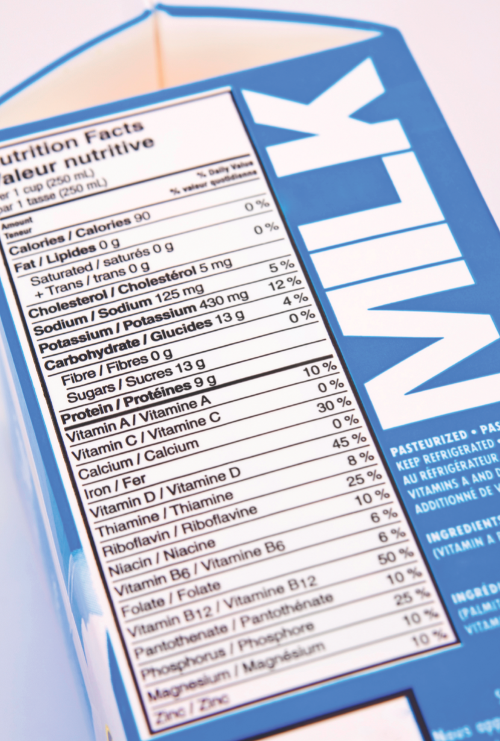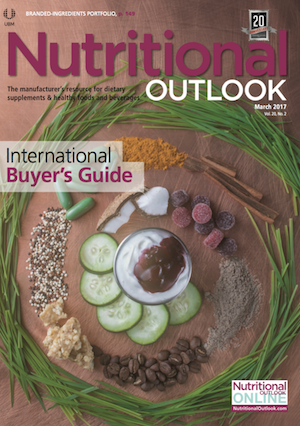Would Banning Plant-Based Milks from Using the Word "Milk" Really Solve Dairy’s Problems?
Where I do think dairy representatives have a point is when they argue that consumers could be under the impression that dairy milks and plant-based milks are nutritionally equivalent if both are called “milk.”
Photo © iStockphoto.com

As plant food sales continue rising, competition between dairy milks and plant-based milks is heating up, and it all comes down to one word: milk. When news broke in December that lawmakers had urged FDA not to let plant-based milks like soy milk and almond milk use the term milk to describe their products, some reacted with a bit of an eye roll.
One can understand why the dairy industry feels so threatened. Sales of cow’s milk are falling, to the dismay of dairies and representatives of dairy-producing states, while sales of plant-based milks are growing as more consumers buy dairy alternatives. In their December letter to FDA, the lawmakers said that by calling their products “milk,” plant-based milks mislead consumers into thinking that non-dairy and dairy milks are equivalent.
On the surface, it’s hard to believe that any reasonable consumer would confuse the origins of soy milk and cow’s milk, or, even when tasting the two, not be able to discern the organoleptic differences in taste, smell, and texture. The Good Food Institute (GFI), a nonprofit organization that promotes alternatives to animal agriculture, made these arguments in a petition the group filed on March 2. The petition asks FDA to make clear, in both law and guidance, that “new food” products in general that differ from the conventional standard of identity of a food-think gluten-free bread, almond butter, or, indeed, soy-derived milk-should be able to use the same identifying term as their counterparts (“bread,” “butter,” and “milk”.) Moreover, GFI argues, allowing this is far less confusing to consumers than, say, making a non-dairy vegan cheese call itself a “cultured nut product.”
“Products like soymilk should be called by the names consumers use and recognize,” says Emily Byrd, GFI’s senior communications specialist. “The goal of FDA’s labeling provisions and regulations is to ensure that consumers are not confused. Using common terms such as soymilk and almond milk is the least confusing way to label these products.”
Where I do think dairy representatives have a point is when they argue that consumers could be under the impression that dairy milks and plant-based milks are nutritionally equivalent if both are called “milk.” In their letter to FDA, the Congressmen wrote, “Milk, produced by the mammary gland, also has a unique nutritional value, providing an excellent source of protein and a wide array of vitamins and minerals, including calcium, vitamins A and D, and potassium. Plant-based products clearly fail to meet this standard of identity. They are unable to match the nutritional makeup of the product they mimic, yet they continue to be marketed as milk.”
While I don’t think that consumers are dense enough to think that soy milk comes from a cow, I do believe they could, without examining labels, potentially believe that plant-based milks are nutritionally equivalent substitutes for dairy milk. In its petition, GFI points out that consumers do have a tool at hand with which to compare two products: the nutrition facts label. But, how many consumers actually look at the nutrition facts label?
La Toya Sutton, an attorney in the advertising, marketing, and media practice at law firm Manatt, Phelps & Phillips, points out that the issue isn’t so much whether plant-based milks are called “milk;” the issue is whether plant-based milks are being marketed to imply that they are equivalent to milk and dairy products. GFI argues that this is not the case because by using a qualifying descriptor like “almond” or “soy,” almond and soy milks deliberately set themselves apart from regular dairy milk.
Currently, Sutton says, FDA regulations as written do not prevent plant-based milks from using the word milk. Moreover, she says, “I think it would be a really uphill battle to argue that using these terms that are now just standard parts of the lexicon would be misleading and therefore in violation of the law.”
And although the milk industry is right to object if plant-based milks try to infer they are equivalent to dairy milk instead of alternatives if they are not, it’s dubious that banning plant-based milks from using the term milk is solely the answer the dairy industry is looking for. Denying plant-based milks the right to use the word milk isn’t the answer when it comes to helping the dairy industry regain strength. For whatever their reasons, consumers are making the conscious choice to buy plant-based alternatives, and it goes without saying that their decision to move away from dairy is a much bigger problem for the dairy industry to tackle.
Also read:
Plant-Based Food and Drinks Are Scaling the Food Chain
7 Vegan Dietary Supplement Ingredient Trends
Jennifer Grebow
Editor-in-Chief
Nutritional Outlook magazine
jennifer.grebow@ubm.com
Prinova acquires Aplinova to further increase its footprint in Latin America
April 7th 2025Prinova has recently announced the acquisition of Brazilian ingredients distributor Aplinova, which is a provider of specialty ingredients for a range of market segments that include food, beverage, supplements, and personal care.
















